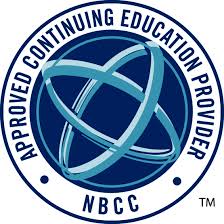Next Occurrence TBA
Presented via Zoom Video Communications
COURSE DESCRIPTION
Despite the prevalence and severity of eating disorder diagnoses, relatively few mental health professionals receive formal training in how to treat them. The amount of medical, psychological, and nutritional knowledge required to effectively treat eating disorders is overwhelming at best. Additionally, clients presenting for eating disorder treatment can also have a variety of high-risk behaviors, including urges and thoughts of suicide and self-harming. This acuity, along with other behaviors that interfere with treatment, often derails otherwise front-line treatments.
Based in the theory and practices of Dialectical Behavior Therapy, this two-day workshop will provide an overview on assessing and diagnosing clients with eating disorders and includes specific decision points to guide a clinician on choosing the appropriate treatment. DBT has been effectively adapted to treat multi-diagnostic clients with eating disorders, and this training will focus on applying those adaptations. Instruction will include the theoretical and practical adaptations of each mode of comprehensive DBT to the treatment of eating disorders. This training incorporates up-to-date research outcomes, teaches theoretical and practical interventions, and offers hands-on practice for a clinician wanting to immediately expand their DBT skill set to the treatment of eating disorders. While this training assumes attendees have basic knowledge of comprehensive DBT, no prior knowledge of eating disorder treatments is required.
LEARNING OBJECTIVES
Upon completion of this two-day workshop, participants will be able to:
- Identify gold standard evidence-based treatment models used to treat eating disorders and name the clinical indicators for choosing a specific modality.
- Understand the medical, psychological, and cognitive symptoms of eating disorders and how they inform case conceptualization and treatment interventions.
- Name core components of DBT theory and principles that inform treatment planning for clients with eating disorders.
- List key DBT strategies used to orient, commit, and engage a client during treatment of eating disorders.
- Understand the function of DBT skills groups, individual therapy sessions, phone coaching, and consultation team when treating clients with eating disorders.
- Practice setting a DBT individual therapy agenda that includes the active assessment of eating disorder symptoms.
- Understand the essential role of behavioral and solution analysis in treating clients with eating disorders.
- Identify specific examples of how DBT skills are used to treat clients with eating disorders.
Instructor | Dean Malec (he/him), PhD, is a licensed psychologist and Director of Training for CEBTOhio. He completed his doctorate in counseling psychology from Cleveland State University in August 2020. Dr. Malec has received intensive training in Dialectical Behavior and Cognitive Behavioral therapies, and has worked with clients in settings such as university counseling centers, community based mental health, and eating disorder specialty clinics. He treats adolescents and adults with a variety of presenting problems, including eating disorders, anxiety and mood disorders, and difficulties with emotion regulation. Valuing evidence-based practices within the context of cultural humility, Dr. Malec welcomes working with people of all identities and life experiences.
As the Director of Training at CEBTOhio, Dr. Malec oversees CEBTOhio’s practicum/internship program and provides clinical supervision to trainees. Dr. Malec has several years of experience collaborating and training with members of the CEBTOhio leadership team. In his spare time, he enjoys spending time with family and friends and watching (and quoting) episodes of “The Golden Girls.”
WHO SHOULD ATTEND?
While all are welcome to attend, please know this workshop is designed for clinicians who are already familiar with comprehensive DBT and have little to no experience in treating eating disorders.
PRICING
|
Individual Registration Fee |
Group Registration Fee (for 3 or more) $325.00 per person |
Students are eligible for 15% off individual registration fee* |
*email training@pdbti.org for student discount code
CONTINUING EDUCATION HOURS
 Participants who complete both training days will earn 12 CE hours.
Participants who complete both training days will earn 12 CE hours.
Portland DBT Institute has been approved by NBCC as an Approved Continuing Education Provider, ACEP No. 6326.
Programs that do not qualify for NBCC credit are clearly identified. Portland DBT Institute is solely is responsible for all aspects of the programs.
Private Training Requests
Portland DBT Institute training is available to schedule as a private training for your group. PDBTI’s training team travels locally, nationally, and internationally, to provide evidence based, adherent DBT training. Please fill out our Training Request Form and a training coordinator will contact you to see how we can work together to exceed your organization’s training goals.
CANCELLATIONS AND REFUNDS
A $60.00 handling fee will be deducted upon cancellation. Refund requests by fax or email must be received two weeks before the start date. In addition, the fees are non-transferrable.
PDBTI reserves the right to cancel any program due to under-enrollment, or any course due to work stoppages, instructor illness or inclement weather. If a course is cancelled, PDBTI is responsible for refunding only the course fee.
